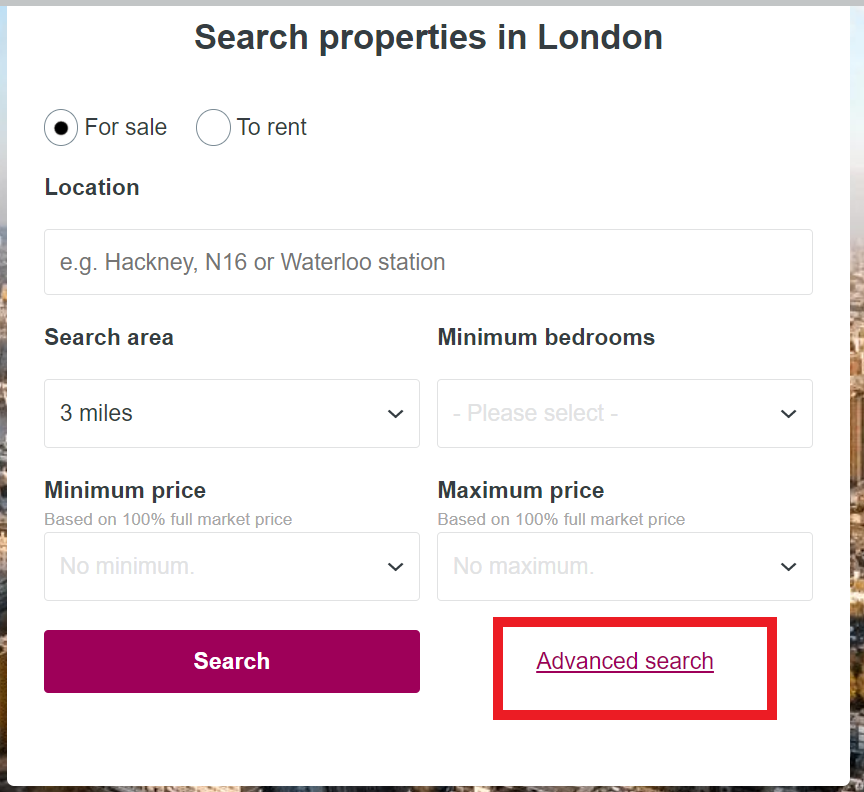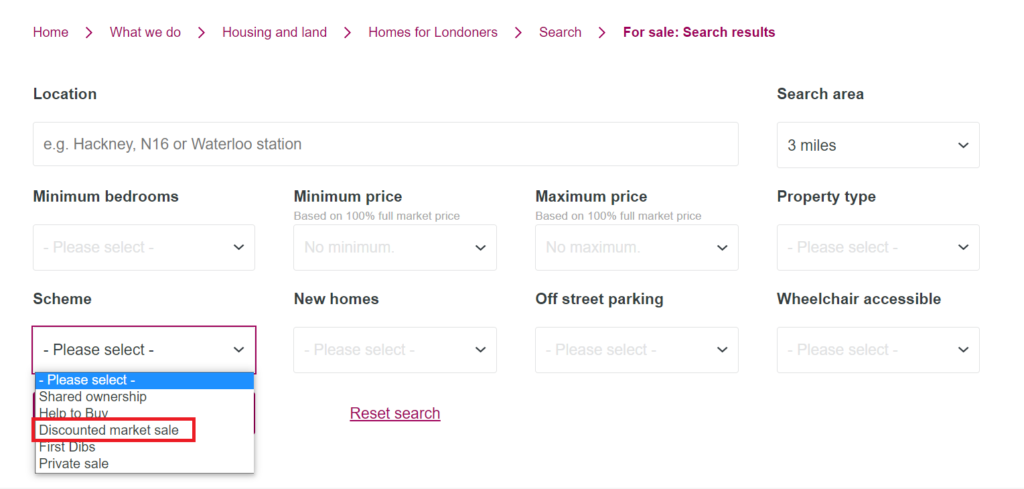(Note – this guide is different to the new First Homes policy introduced in the UK)

What is a discount market sale property?
A discount market property is sold to someone on a low or middle income at a discount to the current market price of homes in the area. It allows someone to get on the property ladder in the UK when they wouldn’t usually be able to afford home ownership.
Who sells properties at a discount?
It’s true that property developers want to sell their homes to customers at the market price. Selling homes at a lower price would mean reduced profits for them.
This is where participation is needed from local authorities – i.e. councils. Councils will partner up with developers to offer properties at a discount to the market value. Housing associations also offer discount market properties in the same way.
How Big Is The Discount?
Every scheme is different, but the discount can be as low as 20% and as high as 50% of the property’s market price.
Can Anyone Buy a Discount Market Sale Property?
No. There are normally eligibility requirements for someone to meet before applying for a discount market sale home.
What Are The Eligibility Requirements?
Each local authority will normally have their own specific requirements for you to meet. Usually there is the following:
- Income limit – Your income will need to be below a certain level to qualify. This makes sense as these homes are designed for people who cannot afford a property at regular prices.
Most local authorities are setting this income limit at a maximum of 45% of the property’s price. - Resident Requirement – You usually need to be either a resident in the local area or have a job in the local area. They sometimes refer to this as a ‘local connection’ with the area.
- Savings – Your savings/equity/gifted deposits must not normally be greater than 65% of the discounted price of the home.
- No homes already owned – If you already own a home, chances are that you will not be eligible for the DMS scheme. It is designed to get first time buyers on the property ladder.
Do I need a deposit with a discount market sale property?
You will still need to provide a deposit to fund the purchase. Before the financial crisis of 2008 it was possible to get a mortgage for 100% of the value of the home – i.e. no deposit required.
However since then the mortgage lending industry became more regulated and now require a deposit for a property purchase.
How does the discount market sale work with a mortgage?
The DMS scheme can either be good or bad for your mortgage application.

The Good Side
There is a real benefit to the lender when you get a mortgage on a discount market sale property.
If we assume that the market price of the home is 100% to start with. A local authority may agree to provide a 30% discount to the market price under a discount market sale.
This means the price you need to pay for the property will now be 70% of the original value. Assume you have to put down a minimum deposit of 5% of the home’s original value (this can be different with each lender) this leaves the remaining 65% to fund with a mortgage.
From a lender’s side, they are only having to provide a mortgage to cover 65% of the home’s value. Or in other words, house prices could fall be over 30% before a lender becomes nervous about getting their money back!
Another example is below:
Property Price: £300,000
30% Discount: £90,000
Price to Pay: £210,000
The Bad Side
On the bad side, there are lenders who perceive discount market sale properties to be higher risk. The properties are unlikely to appeal to as many potential buyers as a property on the open market would do. This means that they are concerned that in the future the property may need to be sold at a lower price than it is today.
Because they are lending funds based on the property’s value (i.e. what it is worth today), the lender is focused on ensuring they can get their money back in the event that the property has to be sold.
Discount market sale homes also have restrictions on what price they can be sold at in the future (more on this further down). Because of this restriction, a lender cannot sell the home at the full market value. In some cases there may be further restrictions written into the property title on who the property can be sold to.
The sales process for a discounted market home can also take longer as it involves the council (explained further down).
How Is This Different To Shared Ownership?
Shared ownership is a very different model for buying a home. Although it is still a government scheme, there are some drawbacks compared to the discount home scheme.
Shared ownership is where the home buyer can only afford to purchase part of a property. Because they cannot afford to buy the full property value from the start, the part that is not bought by the home buyer is instead rented by them.
So for shared ownership you have to pay a mortgage and some rent. This is different to a discount market sale where you just pay the mortgage on the property. And because you purchase the full property, there is no rent to pay. This tends to mean that a discount market home is cheaper than a shared ownership home in terms of monthly repayments (although this would depend on mortgage rates and the level of rent set).
Are there any downsides?
Title Restrictions
When you buy a discount market sale home a restriction is placed on the title register of your property in the Land Registry.
In the same way that you benefit from the discounted price of the home you buy, the local authority wants to make sure that if you decide to sell the property in the future the next buyer will get a discount too. This is an important point to remember in the future if you do decide to sell a discount market sale home.
By having the restriction built into the title of the property, the local authority ensures that the home is perpetually affordable for future generations.
Limited Availability
Discount market homes are an attractive option for home buyers who cannot afford a full priced home. Unfortunately, there is a shortage of affordable housing in the UK and waiting lists can be large for a discount market home.
Selling the Home
If you do decide you want to sell your discounted home at a later date, you will need to involve your local authority and will likely have to get consent from them before proceeding.
Policies can vary depending on the authority you are dealing with. Normally local authorities will instruct what price you are to market the property at and require evidence of professional valuations being done for your home.
Local authorities tend to be quite involved with finding a new buyer for your discounted home. Some will stipulate that they must be given a certain amount of time to market a discounted property on their site before you are allowed to appoint an estate agent to market the property on the open market. It is normal for them to request contact with any estate agent you are using.
Potential buyers will also need to complete the relevant application forms so that the local authority can assess them for suitability. This can sometimes slow down the selling process if the council’s resources are stretched.
Fees
Be aware that your local authority may also charge fees for buying or selling your discount market property, so these need to be properly budgeted.
Top Sites for Discount Market Sale
Most council websites will have a section that list their discount homes for sale in the area.
Homes For Londoners provides a portal for discount homes available in the Greater London region. Make sure you select the advanced option in the search and click on discount market homes.


